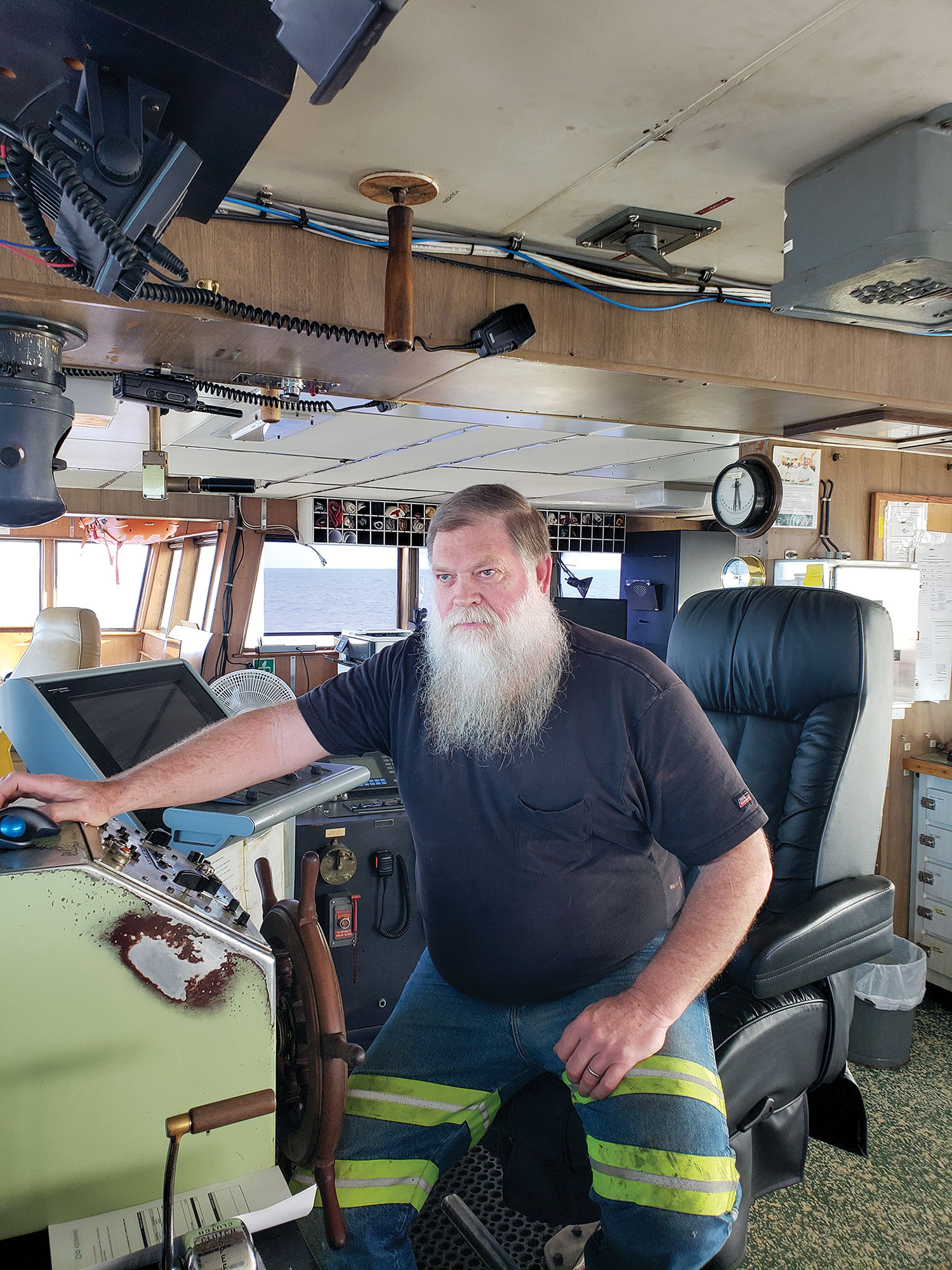Great Lakes Dredge & Dock operates the largest dredging fleet in the United States, with vessels at work all around the world. And during Capt. Chris Harvey’s almost 40 years with the company, he has worked on just about every one of the company’s hopper dredges.
A native of Ulster County, N.Y., Harvey had an uncle in the maritime industry who was working for Great Lakes when he was finishing high school in the early 1980s.
“As a kid, I always figured I wanted to go to sea,” Harvey said. “I had an uncle in the industry who told me the best way to do that was go to the maritime academy and get a good education, then go on to the shipping world after that. He also introduced me to Great Lakes in the early ’80s.”
Harvey attended the State University of New York Maritime College at Fort Schuyler. He stepped onto his first dredge in 1981 as an observer. He was hired on with Great Lakes Dredge & Dock in June 1983, right after graduation. Since that time, Harvey has spent about 21 years with Great Lakes’ international division, with the balance working along the coasts of the United States and on special projects for the company. He became a captain in 1987 and is one of the company’s longest-tenured captains.
Working overseas with Great Lakes gave Harvey the opportunity to spend time in the Middle East, Brazil, Mexico, South Africa and India, with much of that time spent aboard the dredge Victoria Island.
“Those were my happiest times,” he said. “It was challenging, but I’m more adept to the ‘jungle rules,’ if you know what I mean, and it was kind of uncharted territory for us.”
Harvey fondly recalled one time period on a dredge working internationally where there were 13 different nationalities represented among the crew members. Dear friends grew out of that great diversity, he said.
“I got to know those guys,” Harvey said. “Communication was tough, but I’ve made lifelong friends who reside around the world from those times.”
Those diverse crewmates and far-flung work sites had a huge impact on Harvey’s perspective, as well.
“I learned pretty quickly that America is not the center of the universe,” he said. “There are a lot of different viewpoints and ways to do things.”
At the same time, though, Harvey admitted that life aboard a dredge isn’t easy, especially as it relates to family and friends back home. Early on in his 20 years working overseas, Harvey went through a divorce.
“Unfortunately, that’s a pretty common occurrence for seamen and dredgemen,” he said.
But that experience also opened the door for Harvey to spend a significant amount of time aboard the dredge, which helped him advance his career as a dredge captain. He also met his second wife 12 years ago in the Middle East.
“I was happy as a clam with that,” he said.
With Harvey working stateside for Great Lakes since 2016, the couple now calls Wyoming home. Harvey, who plans to retire in March 2023, said he officially works one month on and one month off, although operating during the COVID-19 pandemic has affected that a bit.
“Life on a dredge and working with Great Lakes in particular has been very, very good to me over four decades,” he said. “I look back and it and I’m like, ‘Where did it go?’ Now I’m this old guy with gray hair. It just seems to have gone by with the blink of an eye.”
Reflecting on his career, Harvey said he’s seen great leaps in both technology and in the safety culture aboard dredges.
“Back in the early ’80s, we had a little bit of a cowboy mentality,” Harvey said.
Starting in the early 2000s, though, company initiatives and crew buy-in combined to really transform the safety mindset of working on dredges.
“An inherently dangerous industry is much safer now because of some changes that were made 15 or 16 years ago,” he said.
Assignments have also changed a bit, with beach-building and renourishment playing a much larger role.
Dedication and commitment of the crew, though, has not changed, and that’s been on display throughout the pandemic, Harvey said. While Great Lakes crews have not gone untouched by the virus, disruptions have been minimal. Up until several weeks ago, Harvey’s vessels—the ATB Douglas Mackie and the dredge Ellis Island—have been untouched by COVID. His crew has moved past its quarantine and is “back to a clean slate,” Harvey said.
“I attribute that to the things Great Lakes has instituted fleet-wide, as well as the guys not only taking care on board the vessel but also being mindful of what they do at home, so they don’t pick something up at home and bring it to the vessel,” Harvey said, later adding, ‘It’s a crazy situation, but it certainly helps when you have the company behind you, giving you the tools needed and the protocols to try and minimize, if not eliminate, the COVID problem, and then you combine that with crews that are mindful of their shipmates.”



